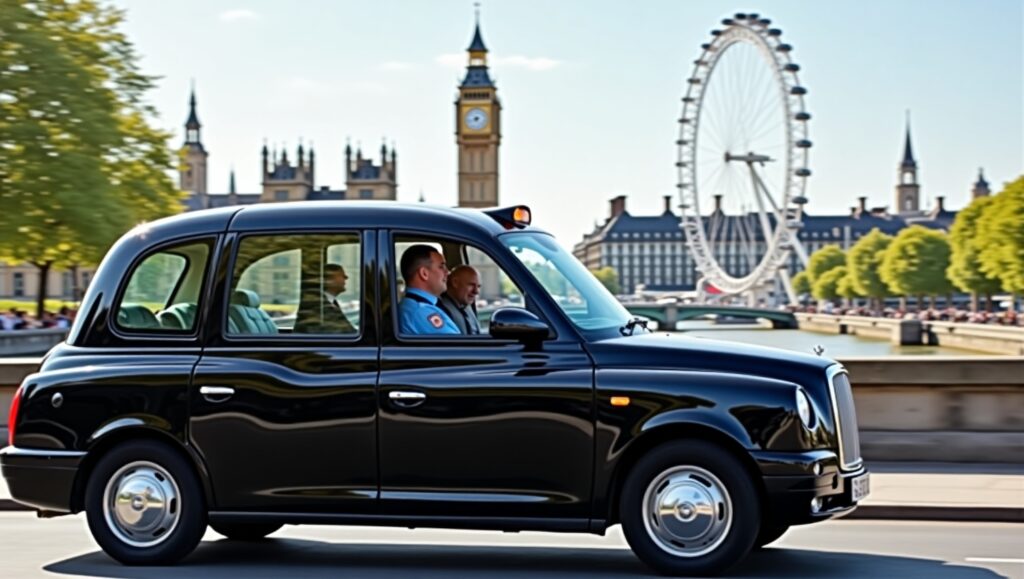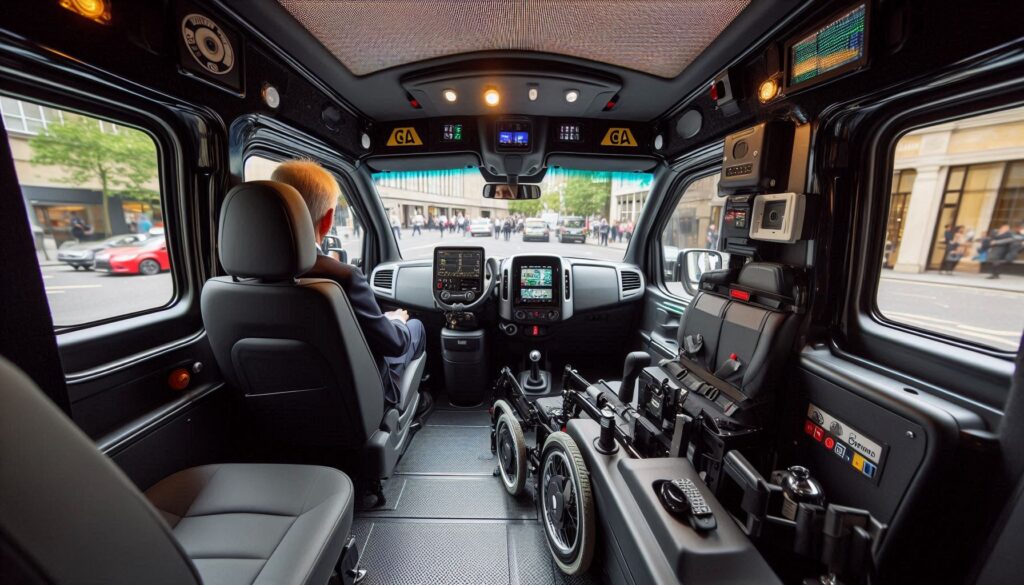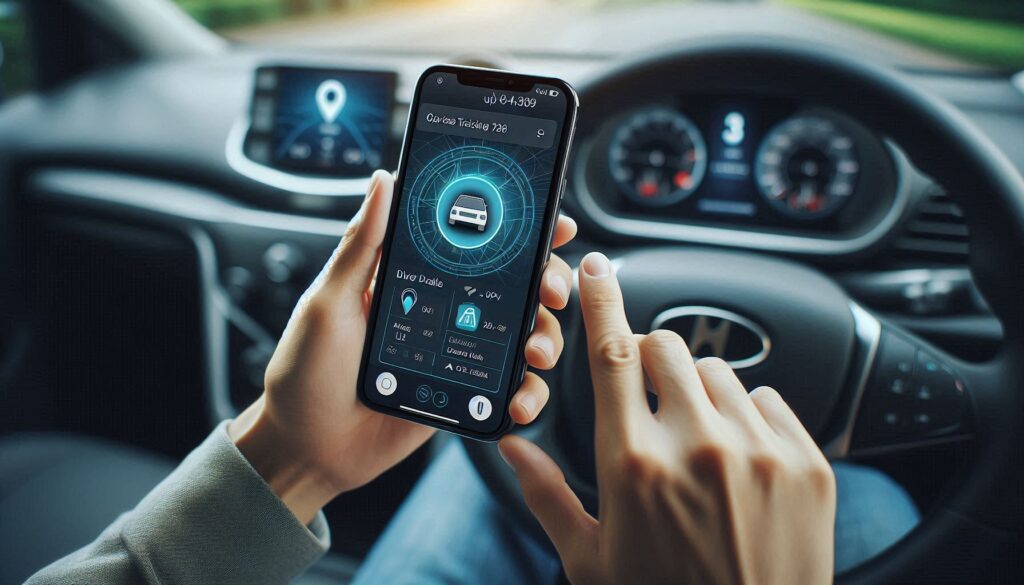Every year, millions of UK residents and visitors rely on taxis and private hire vehicles (PHVs) to navigate bustling cities, late-night outings, and airport transfers. But with passenger safety making headlines—from stringent licensing debates to emissions concerns—the question arises: Are traditional black cabs or modern private hire services the safer choice? In this guide, we’ll dissect the safety credentials of both options, exploring licensing standards, vehicle features, and regulatory nuances to help you make informed decisions for your next journey.
Table of Contents
1. Understanding Black Cabs and Private Hire Vehicles
What Are Black Cabs?
Black cabs, officially known as Hackney carriages, are iconic symbols of British transport. These vehicles can be hailed directly from the street or picked up at designated taxi ranks, offering unmatched convenience in cities like London, Manchester, and Edinburgh. Drivers undergo rigorous training, including London’s infamous Knowledge test—a mental map of 25,000 streets and landmarks—ensuring they’re experts in navigation.
Why They Stand Out:
- Street Hailing: Instant access without pre-booking.
- Universal Design: Wheelchair accessibility and spacious interiors.
- Distinctive Look: The classic black design (though many now sport ads or colors!).

What Are Private Hire Vehicles (PHVs)?
Private hire vehicles, often called minicabs, require pre-booking via apps, phone, or in-person at licensed offices. Brands like Uber, Bolt, and local operators dominate this space, offering competitive pricing and diverse vehicle options—from budget sedans to luxury cars. Unlike black cabs, PHVs cannot legally pick up street hails, a rule designed to protect licensed taxi drivers’ livelihoods.
Key Features:
- Pre-Booked Only: Planned rides via apps or operators.
- Varied Fleet: Options range from eco-friendly hybrids to premium models.
- Flexible Pricing: Dynamic fares often undercut black cabs during off-peak hours.
2. Licensing and Regulatory Standards
Black Cabs: The Gold Standard in Licensing
Black cab drivers face some of the toughest licensing requirements globally. In London, aspiring drivers spend 3–4 years mastering The Knowledge, alongside enhanced DBS checks and medical evaluations. Vehicles must meet strict safety criteria, including regular MOT inspections and disability access compliance.
Safety Highlights:
- Enhanced Background Checks: Criminal records and driving history scrutinized.
- Mandatory Training: First aid, customer service, and route mastery.
- Uniform Standards: Transport for London (TfL) ensures consistency across the capital.
Private Hire Vehicles: A Patchwork of Regulations
PHV licensing varies by region, leading to a fragmented system. While TfL oversees London operators, other regions rely on local councils. A 2023 report by the Institute of Licensing revealed inconsistencies—some areas mandate annual vehicle inspections, while others lack stringent driver training.

Key Considerations:
- Regional Disparities: A driver licensed in one area might not meet another’s standards.
- Operator Accountability: Reputable apps like Uber conduct their own driver screenings, but smaller firms may cut corners.
- Vehicle Age Limits: Cities like Birmingham ban PHVs older than 10 years to reduce breakdown risks.
3. Vehicle Safety and Emissions
Black Cabs: Safety Meets Tradition (and Modern Upgrades)
Modern black cabs, such as the electric LEVC TX, boast cutting-edge safety tech: emergency braking, 360-degree cameras, and collision alerts. However, older diesel models—still common outside London—emit higher nitrogen oxides, contributing to urban pollution. A 2022 Independent study found pre-2018 black cabs produced 30% more emissions than average PHVs.
Pros and Cons:
- Safety Tech: New models rival luxury cars in innovation.
- Emissions Gap: Transition to electric is ongoing (only 40% of London’s black cabs are zero-emission as of 2023).
Private Hire Vehicles: Diverse Fleet, Evolving Standards
PHVs lack uniform vehicle specs, but many operators prioritize newer models. Uber’s Clean Air Plan incentivizes drivers to switch to hybrids or EVs, reducing emissions by 50% compared to older cars. Safety features vary widely, though top apps mandate in-car cameras and real-time GPS tracking.

Advancements to Note:
- Eco-Friendly Options: Electric Tesla Model 3s or Toyota Priuses are common.
- Tech Integration: Apps share ride details with trusted contacts for added security.
4. Driver Training and Background Checks
Black Cabs: Masters of the Road
Becoming a black cab driver isn’t for the faint-hearted. In London, aspirants must conquer The Knowledge of London—a gruelling 3–4 year training regime requiring memorization of 25,000 streets and 100,000 landmarks. This rite of passage ensures drivers aren’t just navigators but local experts. Coupled with rigorous background checks, including enhanced DBS (Disclosure and Barring Service) screenings and medical exams, black cab drivers are vetted to the highest standards.
Why It Matters:
- Continuous Learning: Drivers refresh skills annually, including disability awareness and customer service.
- Zero Tolerance: Criminal records or driving offences disqualify applicants immediately.
Private Hire Vehicles: A Mixed Bag of Standards
PHV driver requirements vary wildly across the UK. While Transport for London (TfL) mandates DBS checks and basic navigation tests, regional councils often set lower bars. For example, a 2023 study found drivers in Manchester undergo fewer training hours than those in Birmingham, where PHVs must be under 10 years old. Critics argue this patchwork system risks passenger safety, especially with unlicensed operators exploiting gaps.

Progress in PHV Screening:
- App-Based Vetting: Uber and Bolt conduct their own background checks, including annual licence renewals.
- Calls for Standardisation: The Suzy Lamplugh Trust advocates for UK-wide PHV training modules on conflict resolution and emergency protocols.
5. Passenger Safety Measures
Black Cabs: Built for Security
Step into a black cab, and you’ll find safety woven into its design. Features like anti-slam partition screens, in-vehicle CCTV, and panic buttons linked to local authorities offer tangible protection. The ability to hail a cab curbside—no waiting in dimly lit areas—adds a layer of security, especially for late-night travellers.
Innovations to Note:
- Contactless Payments: Reducing cash handling minimizes theft risks.
- Accessibility: Wheelchair-friendly designs ensure safe travel for all passengers.
Private Hire Vehicles: Tech-Driven Protection
PHVs rely on tech to bridge the safety gap. Licensed operators like Addison Lee provide real-time GPS tracking, allowing passengers to share ride details with friends. Apps also feature in-built emergency buttons and driver ratings, fostering accountability. However, the National Private Hire Association warns that unlicensed minicabs—often advertised on social media—pose significant risks, as they bypass these safeguards entirely.

Top PHV Safety Tips:
- Verify Licences: Check the driver’s photo ID and vehicle registration in the app.
- Use Trusted Apps: Stick to TfL-licensed operators for traceable journeys.
6. Public Perception and Reported Incidents
Black Cabs: Trusted but Not Flawless
Black cabs enjoy strong public trust, with a 2023 Transport Focus survey revealing 82% of passengers rate their safety as “excellent.” However, isolated incidents—like a 2022 Camden robbery involving a fake cab—highlight the need for vigilance. Authorities urge travellers to always check the driver’s green TfL badge.
Keywords: Black cab safety record, taxi safety reviews.
Private Hire Vehicles: Progress Amid Scrutiny
PHVs face perception challenges, particularly around unlicensed operators. The Suzy Lamplugh Trust reports 15% of UK passengers feel “unsafe” in PHVs, citing concerns about driver identity verification. Yet, data shows licensed PHVs have a lower incident rate per journey than black cabs, thanks to digital paper trails.
Red Flags to Avoid:
- Unmarked Cars: Never enter a PHV without a pre-booked confirmation.
- Cash-Only Rides: Legitimate operators offer app-based payments.

7. Environmental Considerations
Black Cabs: Greening the Icon
Traditional diesel black cabs are notorious polluters, contributing 25% of London’s transport NOx emissions in 2020. However, the shift to electric models like the LEVC TX—now 40% of London’s fleet—is cutting emissions dramatically. TfL’s £50 million scrappage scheme incentivises drivers to ditch diesel, aiming for a zero-emission black cab fleet by 2033.
Eco-Perks:
- Lower Running Costs: Electric cabs save drivers £100+ weekly on fuel.
- Quiet Rides: Reduced noise pollution enhances passenger comfort.
Private Hire Vehicles: Leading the EV Charge
PHVs are outpacing black cabs in eco-adoption. Uber’s Clean Air Plan has funded 8,000 electric vehicles (EVs) in London, with hybrids and EVs now comprising 60% of its fleet. Smaller operators like Green Tomato Cars use 100% hybrid models, slashing CO2 emissions by 50% compared to standard PHVs.
The Road Ahead:
- Charging Infrastructure: Partnerships with BP Pulse aim to install 1,000 rapid chargers by 2025.
- Affordable EVs: Nissan Leaf and Tesla Model 3 dominate PHV fleets for their range and reliability.

Conclusion: Which Is the Safer Choice?
Recap:
- Black Cabs: Excel in driver expertise, accessibility, and regulated safety features.
- PHVs: Offer affordability, tech-driven tracking, and faster eco-innovation.
Your Decision Guide:
- Late-Night Travel: Opt for black cabs for immediate, vetted rides.
- Budget-Conscious/Eco-Minded Trips: Choose PHVs from licensed, eco-certified operators.
Always verify your driver’s credentials, share ride details, and trust your instincts. Whether you’re hailing a Hackney carriage or pre-booking a minicab, informed choices ensure safer journeys.


Leave a Reply